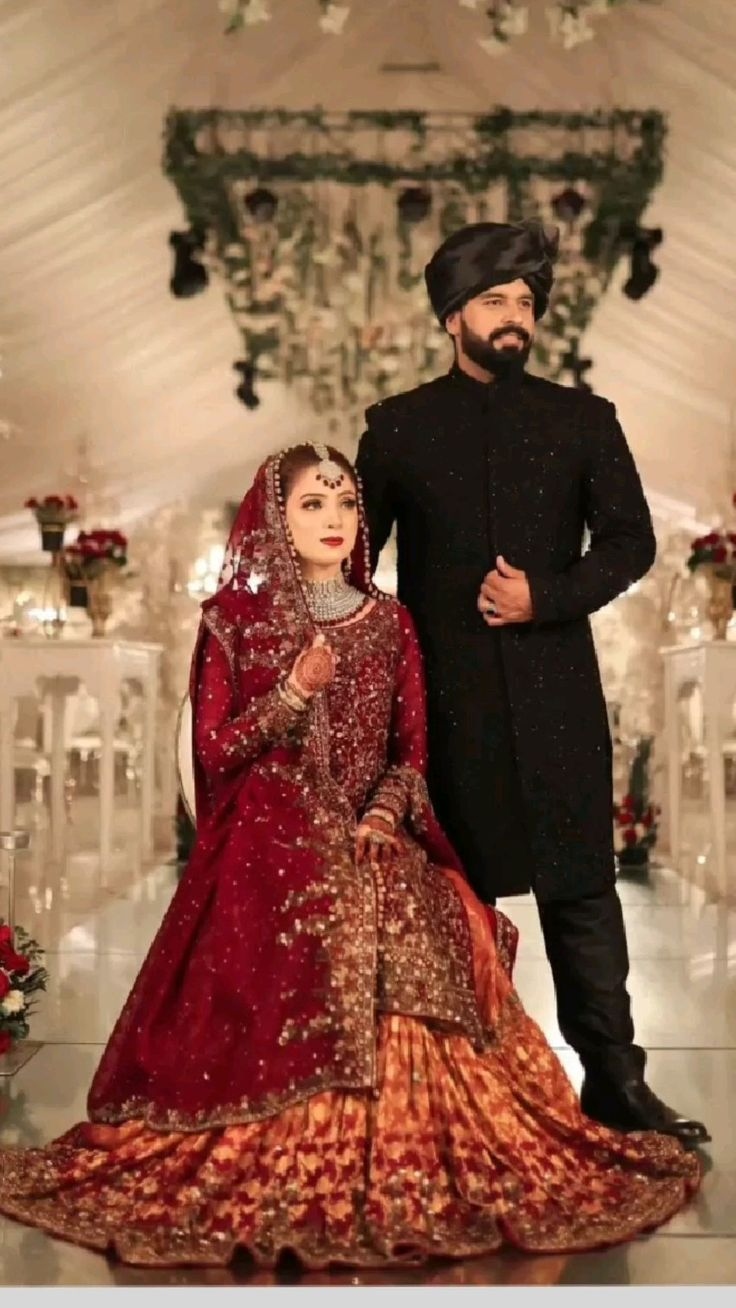
psychological Effects of Late Marriage
In contemporary society, the trend of delayed marriage is becoming increasingly prevalent. As individuals postpone marriage, it’s essential to understand the psychological Effects of late marriage and the implications that come with it. Alhuda Marriage Bureau, with its expertise in matchmaking for mature individuals, has observed the unique challenges faced by those marrying later in life.
The decision to marry later can have various psychological Effects of Late Marriage on both men and women. Understanding these impacts is crucial for individuals, families, and society as a whole. As the age of marriage continues to rise, it’s vital to explore the emotional and mental well-being of those involved.
Key Takeaways
- Delayed marriage can lead to increased emotional maturity.
- Individuals marrying later may face unique psychological challenges.
- Understanding the psychological impact is crucial for mental well-being.
- Alhuda Marriage Bureau specializes in matchmaking for mature individuals.
- The trend of late marriage is becoming increasingly prevalent in contemporary society.
- Exploring the Impacts of Late Marriage – RSIS International
Understanding Late Marriage in Contemporary Society
As societal norms evolve, the definition and implications of late marriage are being reevaluated. The age at which individuals choose to marry has significant cultural, economic, and psychological implications.
Defining Late Marriage Across Cultures
Late marriage is defined differently across various cultures. In some societies, marrying after the age of 25 is considered late, while in others, it’s not until the age of 35 or 40. Cultural influences play a crucial role in determining what is considered “late.”
Global Trends in Marriage Age
Globally, there’s a trend towards delayed marriages. According to data, the average marriage age has increased significantly over the past few decades. This shift is attributed to various factors, including increased focus on education and career.
Pakistani Context and Statistics
In Pakistan, the trend of late marriage is also on the rise. Data from Alhuda Marriage Bureau indicates a significant increase in clients marrying at a later age. The following table summarizes some key statistics:
| Age Group | 2010 | 2020 |
|---|---|---|
| 25-29 | 20% | 35% |
| 30-34 | 10% | 25% |
| 35+ | 5% | 15% |
The statistics highlight a clear shift towards later marriages, reflecting changing societal attitudes and expectations.
Factors Driving the Rise of Late Marriages in Pakistan
Several key factors are contributing to the rising trend of late marriages among Pakistanis. As the country witnesses significant socio-economic changes, individuals are reevaluating their priorities and timelines for marriage.
Educational and Career Advancement
The pursuit of higher education and career establishment is a significant factor. Many individuals are now prioritizing their academic and professional goals over early marriage.
Higher Education Pursuits
With an increasing number of Pakistanis seeking higher education, the age of marriage is being pushed back. Universities are now seen as stepping stones to better career opportunities, leading to a delay in marriage plans.
Professional Establishment Period
Establishing a stable career is another crucial consideration. Individuals are focusing on securing their financial futures before taking on marital responsibilities.
Economic Considerations and Housing
Economic factors, including the cost of living and housing, play a critical role. The financial burden of setting up a new home is a significant deterrent to early marriage.
Evolving Family Structures and Expectations
Changing family dynamics and expectations also influence the trend. Modern families are redefining traditional roles and expectations, contributing to the shift towards later marriages.
Alhuda Marriage Bureau has observed these trends firsthand, noting that mature individuals are seeking compatible partners who understand their unique circumstances and expectations.
The psychological Effects of Late Marriage on Individual Development
As the age of marriage continues to rise, understanding its psychological implications on individual development becomes crucial. Late marriage can have multifaceted effects on an individual’s psychological well-being and personal growth.
Identity Formation and Self-Concept
Marrying later in life can significantly influence one’s identity formation and self-concept. Individuals who marry later often have more time to focus on personal development, explore their interests, and establish a stronger sense of self. This period of self-discovery can lead to a more defined identity and a clearer understanding of personal values and goals.
Emotional Maturity and Decision-Making
Emotional maturity is another critical aspect affected by late marriage. Older individuals tend to have greater emotional maturity, which can enhance decision-making skills, particularly in the context of marital relationships. This maturity can lead to more effective conflict resolution and a deeper understanding of partnership dynamics.
Life Satisfaction and Personal Goals
Life satisfaction and the achievement of personal goals are also influenced by the timing of marriage. Individuals who marry later often have had the opportunity to achieve various personal milestones.

Achievement of Milestones
Achieving milestones such as educational goals, career advancements, and financial stability can contribute to a sense of accomplishment and readiness for marriage. This, in turn, can enhance overall life satisfaction.
Sense of Purpose and Direction
Moreover, having a sense of purpose and direction is vital for psychological well-being. Individuals who marry later have often had time to establish their personal and professional goals, leading to a clearer sense of direction in life.
Alhuda Marriage Bureau recognizes the importance of emotional readiness and personal development in preparing individuals for marriage. Their approach includes pre-marital counseling services designed to support individuals in achieving emotional maturity and understanding their personal goals.
Gender-Specific Psychological Effects of Late Marriage
The phenomenon of late marriage has become increasingly prevalent, bringing with it a unique set of psychological implications for men. As men delay marriage, they experience various psychological effects that can influence their masculine identity, career-family balance, and overall readiness for partnership.
Masculine Identity and Societal Expectations
Traditional notions of masculinity often intertwine with societal expectations around marriage and family. Men who marry late may face challenges in reconciling their personal identity with societal norms.
Alhuda Marriage Bureau recognizes this challenge and offers support through personalized matchmaking services that cater to the individual needs of men.
Career-Family Balance Perspectives
Men who marry later in life often have established careers, which can impact their ability to balance professional and family responsibilities.
Effective career-family balance strategies are essential for men to navigate these challenges successfully.
Emotional Readiness for Partnership
Emotional readiness is a critical factor in the success of a marriage. Men who marry late may have developed certain emotional maturity, but they may also face challenges in adapting to a partnership.
Pre-marital counseling can play a significant role in enhancing emotional readiness.
Communication Patterns
Healthy communication patterns are the backbone of any successful marriage.
Alhuda Marriage Bureau emphasizes the development of effective communication skills through its pre-marital counseling services, helping men to express their needs and feelings effectively.
Compromise and Adaptation Skills
The ability to compromise and adapt is crucial in marriage.
Late marriage can sometimes make this more challenging due to established habits and expectations. Alhuda Marriage Bureau’s counseling services focus on building these skills to ensure a harmonious marital relationship.
Gender-Specific Psychological Effects on Women
Women’s experiences with late marriage are shaped by a myriad of psychological, social, and cultural factors that influence their well-being. As the age of marriage continues to rise, understanding these effects becomes increasingly important.
Reproductive Considerations and Biological Clock
The pressure to marry and have children can be a significant source of stress for women, particularly as they approach the perceived limits of their reproductive years. The biological clock can become a major concern, affecting their mental health and decision-making processes.
Independence and Identity Negotiation
Late marriage can offer women a period of independence, allowing them to establish their identities outside of marital roles. However, this independence can also lead to identity negotiation as women balance personal aspirations with societal expectations.
Social Pressure and Family Expectations in Pakistani Society
In Pakistan, social pressure and family expectations play a crucial role in shaping women’s experiences of late marriage. The societal emphasis on marriage can lead to feelings of isolation or stigma for women who remain unmarried beyond a certain age.
Urban vs. Rural Experiences
The impact of late marriage on women can vary significantly between urban and rural areas. Urban women may experience more liberal attitudes towards late marriage, while rural women might face more traditional expectations and pressures.
Educational Level Impact
A woman’s educational level can also influence her experience of late marriage. Higher education can provide women with more autonomy and resources to navigate the challenges associated with delayed marriage.
Understanding these gender-specific psychological effects is crucial for providing support to women navigating late marriage. Services like those offered by Alhuda Marriage Bureau can play a vital role in addressing these challenges, offering tailored matchmaking and pre-marital counseling services that cater to the unique needs of mature individuals.
Relationship Dynamics in Late Marriages
Marrying later in life can have a profound impact on relationship dynamics, influencing everything from power balance to emotional intimacy. As individuals delay marriage, they often bring more life experience and maturity to their relationships.
Power Balance and Decision-Making
In late marriages, the power balance can be more evenly distributed, as both partners have had time to establish their careers and personal identities. This balance can lead to more collaborative decision-making processes.
Conflict Resolution Patterns
Couples in psychological Effects of Late Marriage may have developed more effective conflict resolution strategies, having navigated various life challenges independently before coming together. This can foster a more resilient and adaptive relationship.
Intimacy and Emotional Connection
Intimacy in late marriages is often characterized by a deep emotional connection, as partners have had time to develop a strong sense of self and understand their emotional needs.
Trust Development
Building trust is crucial in any marriage, and in late marriages, this process can be facilitated by the partners’ increased emotional maturity and life experience.
Vulnerability and Openness
Vulnerability and openness are essential components of a healthy and fulfilling relationship. In late marriages, partners may be more inclined to be vulnerable with each other, having established a foundation of trust and understanding.
Cultural and Religious Dimensions in Pakistani Late Marriages
Understanding late marriages in Pakistan requires a nuanced exploration of the country’s cultural and religious dimensions. The institution of marriage is deeply rooted in Islamic values and cultural traditions.
Islamic Perspectives on Marriage Timing
Islam encourages marriage as a means of fulfilling one’s religious and social obligations. However, the timing of marriage is influenced by various factors, including financial stability and emotional readiness. Alhuda Marriage Bureau recognizes the importance of these considerations in their matchmaking services.
Family Honor and Community Perception
Family honor plays a significant role in Pakistani culture, and marriage decisions are often influenced by the need to maintain family reputation. Community perception can also impact the timing and arrangement of marriages.
Intergenerational Expectations and Conflicts
Intergenerational conflicts often arise due to differing expectations regarding marriage timing. Parental involvement is crucial, as parents may have traditional views on marriage age.
Parental Involvement
Parents play a significant role in decision-making regarding marriage. Their expectations can influence the timing and choice of partner.
Extended Family Dynamics
Extended family members can also impact marriage decisions, as their opinions and expectations are often considered.
| Cultural Factor | Influence on Late Marriages |
|---|---|
| Islamic Values | Encourages marriage but considers financial stability |
| Family Honor | Impacts marriage timing and partner choice |
| Parental Involvement | Influences decision-making and expectations |
Coping Strategies and Support Systems
Individuals facing late marriage can benefit significantly from tailored coping mechanisms and support networks. These resources play a vital role in navigating the complexities and challenges associated with delayed marriage.
Professional Counseling Resources
Professional counseling is a valuable resource for individuals dealing with the psychological impacts of late marriage. Counselors can provide guidance on managing stress, building self-esteem, and improving relationship skills. Alhuda Marriage Bureau offers specialized counseling services tailored to the needs of individuals considering late marriage.
Community and Peer Support Networks
Being part of a community or peer support network can provide emotional support and practical advice. These networks help individuals feel less isolated and more supported in their journey. Support groups can share experiences and strategies for dealing with common challenges.
Self-Care and Personal Development
Engaging in self-care and personal development activities is crucial for maintaining mental and emotional well-being. This includes stress management techniques such as meditation and yoga, as well as pursuing hobbies and interests.
Stress Management Techniques
Effective stress management is key to coping with the pressures of late marriage. Techniques such as mindfulness, deep breathing exercises, and physical activity can significantly reduce stress levels.
Building Resilience
Building resilience is essential for navigating the challenges of late marriage. This involves developing a positive outlook, setting realistic goals, and maintaining a strong support network.
| Coping Strategy | Benefits |
|---|---|
| Professional Counseling | Guidance on stress management and relationship skills |
| Community Support | Emotional support and practical advice |
| Self-Care Activities | Improved mental and emotional well-being |
Alhuda Marriage Bureau’s Approach to Late Marriage Matches
For those considering late marriage, Alhuda Marriage Bureau offers a tailored approach to matchmaking that addresses the unique challenges faced by this demographic. Understanding the complexities and nuances involved in late marriages, the bureau has developed a comprehensive service designed to support individuals in their journey towards a successful partnership.
Specialized Matchmaking for Mature Individuals
Alhuda Marriage Bureau’s matchmaking services are carefully crafted to cater to the specific needs of mature individuals. By considering factors such as life experience, emotional maturity, and personal preferences, the bureau ensures that matches are made with a deep understanding of what contributes to a successful and fulfilling marriage.
Pre-Marital Counseling Services
In addition to matchmaking, Alhuda Psychological Effects of Late Marriage offers pre-marital counseling services aimed at preparing couples for the challenges and opportunities that marriage presents. This counseling is designed to foster a strong foundation for the relationship, equipping couples with the tools and insights necessary for a harmonious and lasting partnership.
Success Stories and Testimonials
The effectiveness of Alhuda Marriage Bureau’s approach is reflected in the success stories and testimonials from couples who have benefited from their services. These stories highlight the positive impact of the bureau’s work in facilitating meaningful and lasting marriages.
Case Studies of Successful Late Marriages
Through detailed case studies, Alhuda Marriage Bureau showcases the success of their matchmaking efforts, demonstrating how their services have helped individuals achieve their marital goals despite the challenges associated with late marriage.
Long-Term Satisfaction Indicators
The bureau also tracks long-term satisfaction indicators among the couples they have matched, providing valuable insights into the durability and quality of the marriages facilitated through their services.
Conclusion: Embracing the Journey of Late Marriage
Understanding the psychological Effects of Late marriage is crucial in today’s society. As discussed, late marriage can have various impacts on individuals, affecting their personal development, relationship dynamics, and overall well-being. The psychological impact of delayed marriage can be significant, influencing one’s identity, emotional maturity, and life satisfaction.
Alhuda Marriage Bureau recognizes the complexities surrounding late marriage and offers specialized support through marriage counseling services. By providing pre-marital counseling and matchmaking services tailored to mature individuals, Alhuda helps navigate the challenges associated with late marriage effects.
Embracing the journey of late marriage requires a nuanced understanding of its psychological implications and the right support systems. With resources like Alhuda Marriage Bureau, individuals can better navigate their path to a fulfilling marriage, addressing the psychological Effects of Late Marriage impact and fostering a stronger, more resilient partnership through effective marriage counseling.
FAQ
What are the common psychological Effects of Late Marriage on men and women?
Late marriage can lead to various psychological Effects of Late Marriage, including changes in identity formation, emotional maturity, and life satisfaction. Men and women may experience different impacts, such as masculine identity and societal expectations for men, and reproductive considerations and social pressure for women.
How does late marriage affect emotional readiness for partnership?
Late marriage can influence emotional readiness for partnership, as individuals may have established their independence and developed emotional maturity. Alhuda Marriage Bureau’s pre-marital counseling services can help individuals develop healthy communication patterns and compromise skills.
What role do cultural and religious dimensions play in late marriages in Pakistan?
Cultural and religious dimensions, such as Islamic perspectives on marriage timing and family honor, can significantly impact late marriages in Pakistan. Understanding these nuances is crucial for navigating the challenges of late marriage.
What coping strategies and support systems are available for individuals dealing with late marriage?
Individuals can access professional counseling resources, community and peer support networks, and self-care practices to cope with the challenges of late marriage. Alhuda Marriage Bureau offers counseling services and support networks for couples.
How does Alhuda Marriage Bureau support mature individuals in their matchmaking journey?
Alhuda Marriage Bureau provides specialized matchmaking services for mature individuals, along with pre-marital counseling to ensure a strong foundation for their relationship. Their success stories and testimonials demonstrate their effectiveness in supporting late marriages.
What are the benefits of seeking professional help for late marriage challenges?
Seeking professional help can provide individuals with the tools and support needed to navigate the challenges of late marriage, including stress management techniques and building resilience.
How can individuals balance their independence and identity with the demands of marriage?
Individuals can work on maintaining their independence and identity while developing a healthy and fulfilling marriage by prioritizing communication, compromise, and mutual understanding.
Also Read:
Marriage Bureau Multan: Find Trusted Rishta Services in Your City
Alhuda Marriage Bureau in Muzaffargarh: Trusted Matchmaking
Alhuda Marriage Bureau Multan: What It Needs & Why It Matters
Marriage Bureau Multan: Find Trusted Rishta Services in Your City



